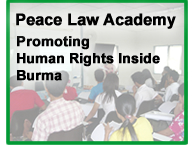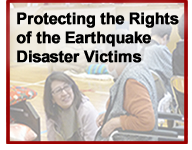October 24, 2013
New York City, New York
Doctors Say UN Science Report Systematically Underestimates Health Impact of Fukushima Catastrophe
Public Discussion
October 24, Thursday, 9:30AM to noon at
Baha'i International Community, 866 UN Plaza, Suite 120, NYC.
OR
VIDEO OF EVENT WILL BE POSTED AFTER THE EVENT
Admission is free. UN pass is NOT required. Pre-registration is required. Please send a list of crew members, contact info and affiliation to: HRNNY1024@gmail.com.
Physicians for Social Responsibility & Human Rights Now present:
WHAT: Two conflicting reports on Fukushima - one by the UN Special Rapporteur on the right to health and the other by the United Nations Scientific Committee on the Effects of Atomic Radiation (UNSCEAR) that will be presented to the UN General Assembly on October 25 at the 3rd and 4th Committees respectively. Mr. Grover, the Special Rapporteur, will speak about his report, and Dr. Rachow will discuss a PSR/IPPNW critique of the UNSCEAR report and how it can be strengthened. Ms. Inoue will discuss the human rights concerns regarding conditions in Japan. The global implications of these reports will be highlighted.
Since the March 2011 nuclear disaster in Fukushima, individuals and communities in Japan continue to be exposed to dangerous levels of radioactivity. There are serious concerns about consequent health effects for citizens in contaminated areas. Residents have a right to live in a safe and healthy environment, however, sufficient protective measures and support are not being provided. The right of access to medical treatment and the medical data about one's own body are being seriously denied. Experts will speak about how two UN reports impact policy regarding the lives and health of citizens currently affected after the nuclear disaster, and what should be done to provide immediate relief to protect their fundamental rights.
Q&A session will follow the presentations.
WHERE: Baha'i International Community, 866 UN Plaza, Suite 120, New York, NY 10017. (48th Street & First Ave.)
WHEN: Thursday, October 24, 2013, 9:30-noon
WHO:
Mr. Anand Grover, Esq.
Mr. Anand Grover, appointed by UN Human Right Council at its eighth session in June 2008, is the UN Special Rapporteur on the right of everyone to the enjoyment of the highest attainable standard of physical and mental health. The position is honorary and he is not a staff of the United Nations nor paid for his work. He is also a practicing attorney in the Bombay High Court and the Supreme Court of India.
From November 15 to 26, 2012, Mr. Grover was on a country mission to Japan to conduct an independent investigation on issues related to the enjoyment of the right to health, including availability, accessibility, acceptability and quality of health services, goods and facilities. Additional aspects investigated are, the underlying determinants of health in Japan within the context of the Great East Japan Earthquake, the events leading to it (including emergency response, recovery and mitigation with a particular focus on challenges and actions taken in response to them), as well as lessons learned and good practices. The mission involved meetings with Japanese government officials, non-governmental organizations, and local citizens affected by the Great East Japan Earthquake, tsunami and the nuclear disaster in Fukushima. Mr. Grover's report on his findings and recommendations was submitted to the Human Rights Council (UNHRC) in May 2013, and will be reported to the Third Committee of the UN General Assembly in New York on October 25, 2013.
Dr. John Rachow, Ph.D., M.D.
Dr. Rachow is a practicing physician, Board Member & Chair of the Radiation and Health Committee, and Past President (2011) of Physicians for Social Responsibility, Washington, DC. He is also an Assistant Clinical Professor of University of Iowa, Department of Medicine, Iowa City, Iowa, USA.
Mari Inoue, Esq., is a practicing lawyer and New York representative of Human Rights Now, Tokyo, Japan.
CO-SPONSORING ORGANIZATIONS:
HUMAN RIGHTS NOW: Human Rights Now (HRN), an international NGO in consultative status with the ECOSOC, is based in Tokyo with several hundreds of members composed of lawyers, scholars, journalists and concerned citizens. In July 2011, on behalf of a coalition of civil society groups in Japan, Human Rights Now requested the Office of United Nations High Commissioner for Human Rights (OHCHR) for a Special Rapporteur to investigate the human rights situation after the disaster. In response to the request, Mr. Anand Grover, the Special Rapporteur on the right to health, visited Japan in November 2012. In December 2012, HRN submitted a joint statement, endorsed by more than 70 civil societies in Japan and worldwide, urging the IAEA and the Japanese government to take a rights-based approach in response to the nuclear disaster based on the preliminary findings and recommendations issued by Mr. Grover in November. To raise awareness of the situation in Fukushima after the nuclear accident, HRN NY has organized human rights seminars and a press conference to inform the international community about the ongoing crisis. (http://hrn.or.jp/eng/)
PHYSICIANS FOR SOCIAL RESPONSIBILITY: Physicians for Social Responsibility (PSR), the U.S. affiliate of International Physicians for the Prevention of Nuclear War (IPPNW) advocates for sound public health policies regarding exposure to radioactive and other toxic materials. PSR is the medical and public health voice working to prevent the use of and to abolish nuclear weapons, to promote safe, non-nuclear energy, and to slow, stop and reverse global warming and the toxic degradation of the environment. Fukushima presents an immediate challenge to protect those individuals most endangered by exposure to dangerous levels of radioactivity, and to adequately and openly track the health consequences of the ongoing irradiation of populations. PSR was founded in 1961 and was instrumental in achieving the Limited Nuclear Test Ban Treaty that ended the global radioactive contamination produced by atmospheric nuclear bomb testing. PSR shared in the 1985 Nobel Peace Prize awarded to International Physicians for the Prevention of Nuclear War (IPPNW), for building public pressure to push their governments to end the nuclear arms race. (http://www.psr.org/)
Please refer to the more detailed full-version commentary







